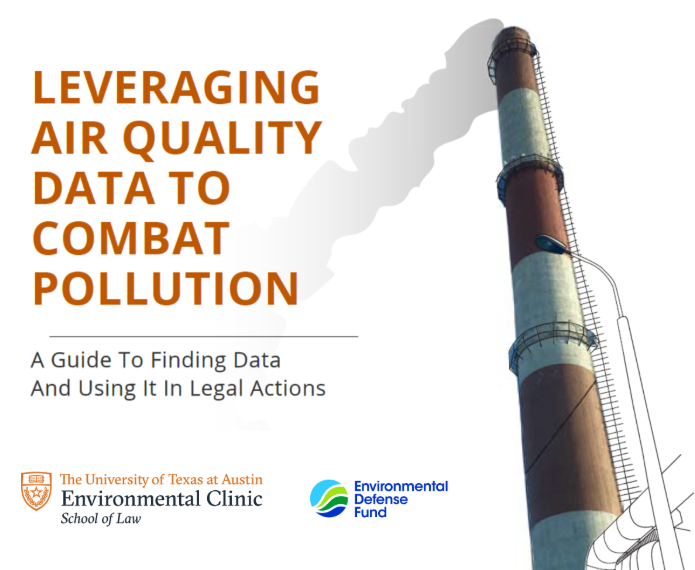Today, there are more ways than ever before to identify what is in the air, who is responsible for it, and how it impacts our health. A new report from the University of Texas Law School’s Environmental Clinic for Environmental Defense Fund provides an overview of how data sources can be used for clean air advocacy through specific legal actions.
The guide identifies federal, Texas, and Louisiana data sources that include information about air emissions, air quality, air permits, air modeling tools, and health impacts of air pollution. It also provides examples of how this data might be used in legal actions to improve air quality.
This report is intended for legal professionals, clean air advocates and data experts seeking to understand how air quality data can be leveraged to reduce air pollution and deliver cleaner air for all.
Click here to read the report and watch a recorded webinar with Q&A. And for more information about these and other air pollution data sources, check out our Air Quality Data Directory.



